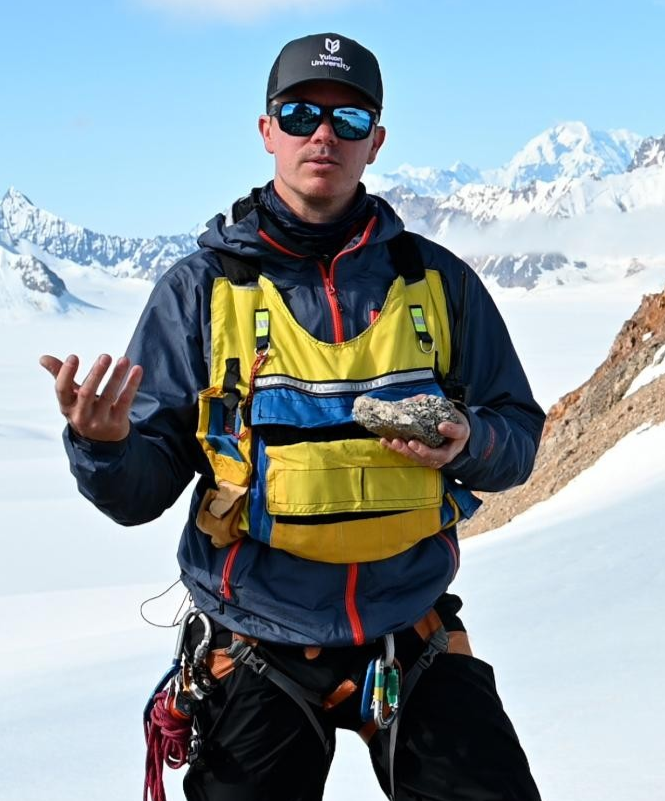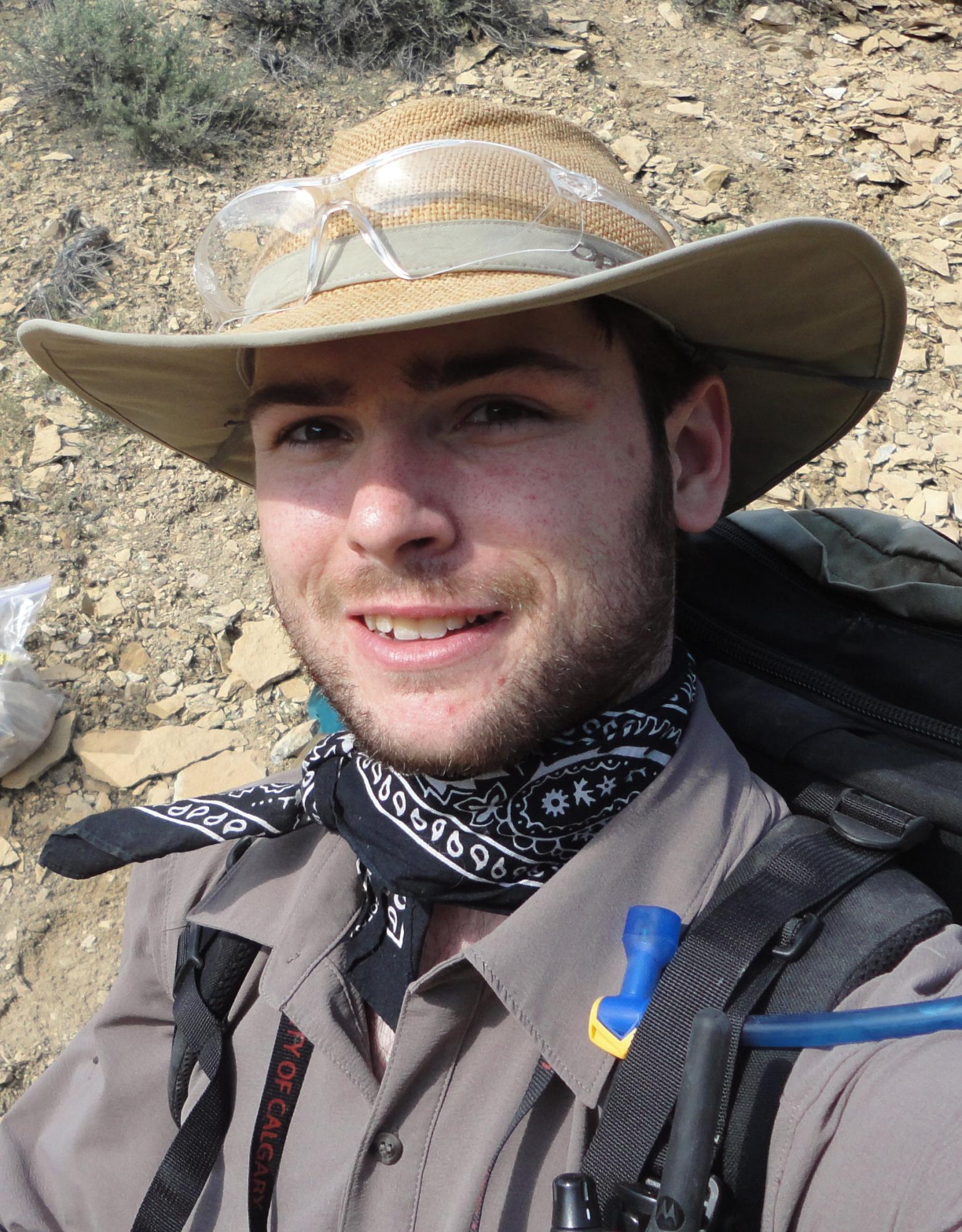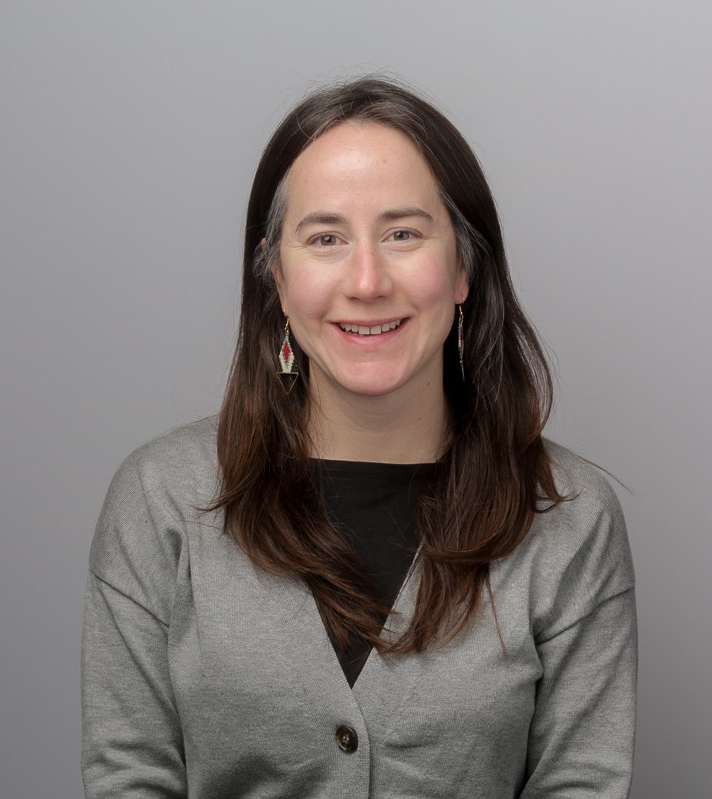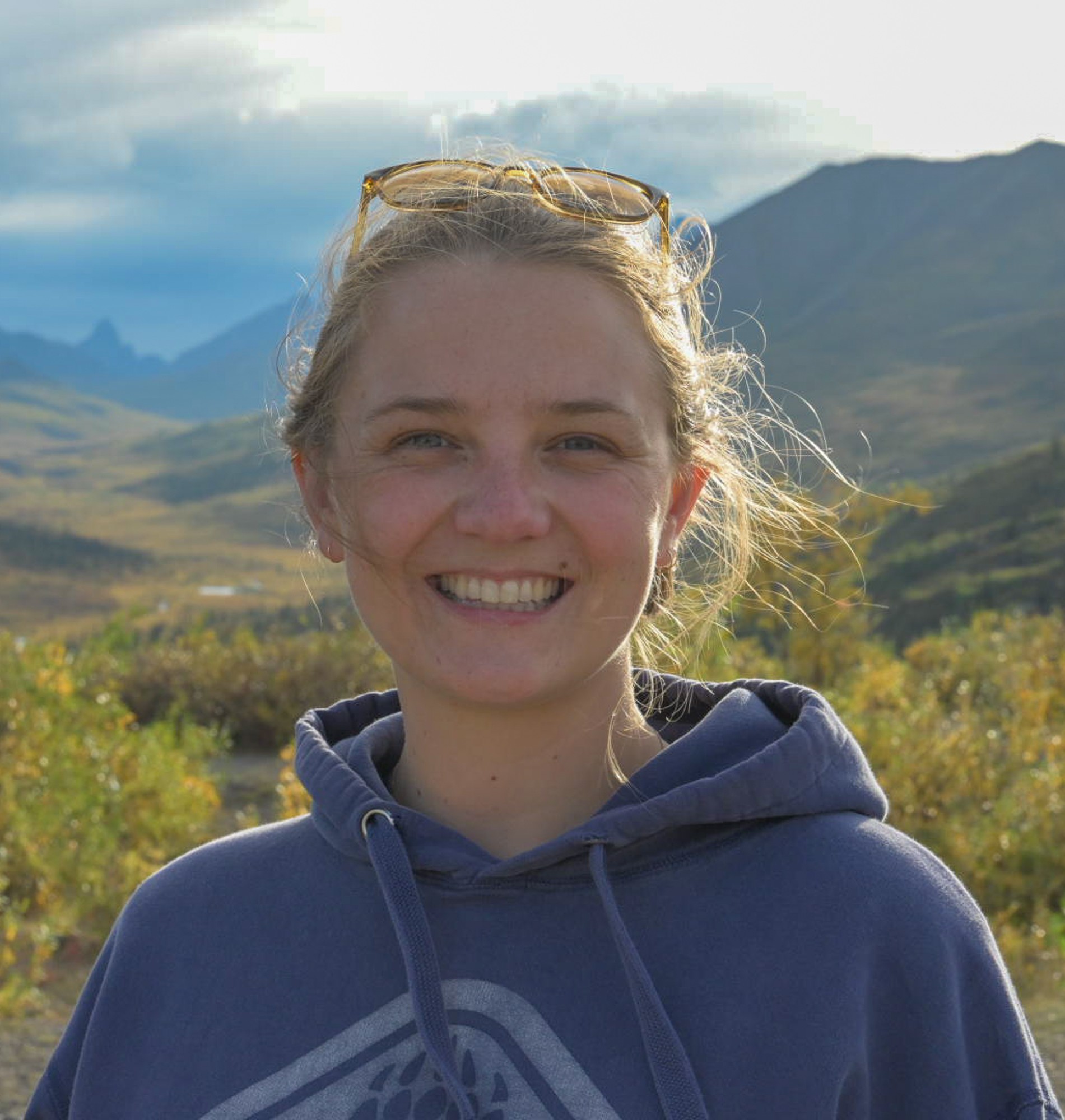The earth at your feet. Experience Yukon's natural laboratory.
Become an Earth Scientist. The Earth Sciences program uses Yukon’s dynamic environment as a laboratory to deliver the first two years of a B.Sc. degree in geoscience. At Yukon University, students have the advantage to complete introductory science courses in a personalized environment characterized by small sizes and dedicated instructors. Geology programming uses local landscapes and partnerships with industry to provide experiential learning opportunities that prepare students to meet the needs of employers and solve big-picture earth science problems facing society today.
In partnership with Acadia University's Department of Earth and Environmental Science, and Vancouver Island University (VIU)'s Department of Earth Science, students in the YukonU Earth Sciences program can seamlessly transfer all credits from up to two years of study in Whitehorse directly towards completion of a B.Sc. in geoscience at either institution. This is a fantastic option for those wanting to start their geoscience education in the North and have the unique experience of studying geology in two amazing locations. This combined degree aligns with all professional geoscientist (P.Geo.) educational requirements. Coursework in the Earth Sciences diploma also has excellent transferability to other university geoscience programs across Canada.
Do you want to learn more about YukonU’s Earth Sciences program? Click here to book an online (Teams) meeting with an Earth Sciences program advisor.
Earth science literacy is critical to meet the needs of modern society. The study of the Earth is focused not only on the rocks and minerals that make up solid Earth but also on the interaction of these materials with other earth systems. An understanding of Earth’s evolution through time allows earth scientists to interpret present-day conditions on our planet and predict how they will change in the future; these changes will affect both human societies and the natural environment.
Earth scientists are stewards of the planet’s mineral, energy and water resources. They must also be problem solvers, as Earth’s natural resources are currently threatened by climate change, overconsumption and natural disasters. In the North, we live in a complex landscape where earth scientists must address the legacy of contaminated sites, support sustainable resource discovery and extraction, and grapple with a rapidly changing environment.
Students completing the two-year program will receive a diploma in Earth Sciences and be eligible for transfer into upper level standing in many Canadian B.Sc. geoscience degree programs. Block transfer agreements between Yukon University and both Acadia University and Vancouver Island University (VIU) allows Earth Science program graduates to seamlessly transfer between institutions and directly apply all completed courses towards completion of a B.Sc. in geoscience in either department.
Coursework completed at Yukon University is compatible with the educational requirements for achieving a professional geoscientist (P.Geo.) designation in the environmental geoscience or geology streams. Completion of a B.Sc. degree following the Earth Sciences program allows for upward workplace mobility in scientific and technical fields and enables graduates to continue to upper-level training in science (M.Sc., Ph.D.).
Program pathways and duration
Students can complete the Earth Sciences diploma program with two years of full-time study. Part-time study is welcomed. Students have reduced course requirements in the summer months to allow for geoscience work experiences. Recommended course completion matrices for each year are provided below.
| Fall Semester | Winter Semester | Winter Semester (late April - early May) |
|---|---|---|
| CHEM 110 - The Structure of Matter | CHEM 111 - Chemical Energetics and Dynamics | GEOL 107 - Geological Field Methods and Mapping I |
| ENGL 100 - Academic Writing and Critical Thinking | COMM 204 - Introduction to Scientific and Technical Communication | |
| GEOL 105 - Physical Geology | GEOL 106 - Historical Geology | |
| MATH 100 - Single Variable Calculus I | MATH 101 - Single Variable Calculus II | |
Science Elective (choose 1): BIOL 101 - Principles of Biology I | Science Elective (choose 1): BIOL 102 - Principles of Biology II CPSC 128 - Object-Oriented Programming I |
| Fall Semester | Winter Semester | Winter Semester (late April - early May) |
| GEOL 200 - Mineralogy | GEOG 250 - Introduction to Mapping and Geographical Information Systems (GIS) | GEOL 216 - Geological Field Methods and Mapping II |
| GEOL 206 - Sedimentology and Stratigraphy | GEOL 211 - Geochemistry | |
| GEOL 208 - Structural Geology | MATH 105 - Introductory Statistics | |
Science Elective (choose 1): BIOL 101 - Principles of Biology I GEOG 101 - Physical Geography I | Geoscience Elective (choose 1): | |
Science Elective (choose 1): BIOL 102 - Principles of Biology II CPSC 128 - Object-Oriented Programming I |
Program learning objectives
The guiding objective of the Earth Sciences program is to provide students with a broadly applicable foundation in geoscience with extensive hands-on exposure and strong connections with industry and government.
Graduates should be well equipped to:
- Explain the fundamentals of major concepts in earth science, including surface and groundwater; natural hazards; glaciers, permafrost and climate change; and mineral and hydrocarbon resources.
- Explain earth processes in the context of plate tectonics and the rock cycle.
- Identify the basic physical and chemical controls on the formation of minerals and rocks, and their fundamental properties.
- Identify, measure, and interpret geologic structures and stratigraphy.
- Explain events in geologic history using geologic evidence and place those events in the context of the geologic timescale.
- Characterize geologic environments, past and present, in which rocks and other geologic materials are formed.
- Apply geologic observations to interpret and solve real-world problems related to energy, water and mineral resource development.
- Effectively communicate geoscience concepts and observations to their peers and the general public.
- Describe indigenous perspectives on Earth evolution and geologic history (ethnogeology) and how those perspectives compare with Western scientific knowledge.
- Demonstrate understanding of indigenous land claim agreements and current best practices for consultation in the context of resource development.
- Safely work and collaborate in a field-based setting.
 Joel Cubley, Ph.D., P.Geo. |  Chad Morgan, Ph.D., AMRSB |  Mary Samolczyk, M.Sc., EP |
Quinn Worthington, M.Sc. |
Standard Earth Sciences admission
- English 12 (minimum 65%), Math 12 ( Precalculus, minimum 65%), and Chemistry 11; OR
- Yukon University prerequisite courses ENGL 060 or EAP 060 (minimum 65%), MATH 060 (minimum 65%), and CHEM 050.
Earth Sciences Bridging Program
Applicants who do not meet these requirements are encouraged to apply to the Earth Sciences Bridging Program. This program allows students to complete academic upgrading while starting on their program coursework. Minimum prerequisites for the Bridging Program are:
- English 12 (minimum 65%), Math 10 ( Principles or Precalculus; minimum 65%), and Science 10; OR
- Yukon University prerequisite courses ENGL 060 or EAP 060 (minimum 65%), MATH 030 (minimum 65%), and SCI 030.
Students interested in applying to the Earth Sciences Bridging Program should choose the regular Earth Sciences program when applying for admission. Additional details about Bridging Program acceptance will then be communicated by the Admissions Office.
Students must successfully complete all required courses within the program, as well as obtain twelve (12) credits from approved fundamental science electives and three (3) credits from geoscience electives. An overall GPA of 2.00 is required to receive the Earth Sciences diploma.
Employment opportunities exist for program graduates in a wide array of fields including environmental monitoring and protection, water resources, mineral exploration, mining, energy, and engineering/geotechnical fields. Program faculty actively work with students to help find meaningful employment both between the two years of the program and after graduation.
The Earth Sciences program is supported and informed by the Centre for Northern Innovation in Mining (CNIM). CNIM's Governing Council consists of industry, academia, government, and First Nations representatives that help ensure programming is applied and relevant and that graduates are well-equipped to succeed in fields across the mineral exploration, mining, and remediation/reclamation sectors. The support of CNIM partners enables the Earth Sciences program to deliver unique, hands-on experiences across Yukon and Alaska that greatly enhance traditional geoscience programming.
Yukon University recognizes that a greater understanding and awareness of Yukon First Nations history, culture and journey towards self-determination will help to build positive relationships among all Yukon citizens. As a result, you will be required to achieve core competency in knowledge of Yukon First Nations.
For details, visit Yukon First Nations Core Competency
Fees
Tuition for credit programs is calculated per course credit. See money matters for more information.
Additional costs above and beyond tuition are associated with this program of study - see Ancillary Fees.
Ancillary fees cover activities such as:
- transportation to and from field school sites
- accommodation and food during field school
- basic geology field equipment, including sturdy hiking boots, rock hammers, field notebooks, and hand lenses
Student financial awards
Education is an investment in your future, your family and your community. Yukon University is pleased to support that investment by offering some of the most competitive tuition rates in the country, as well as several student financial awards to help offset your educational and living costs.
Financial assistance
There are government programs, scholarships, bursaries, awards and First Nation funding available to financially support you throughout your academic career.
See money matters for more information, or talk to our financial advising staff in the Student Services Centre. Email or call 867 456 8574 to make an appointment.
